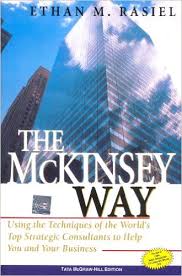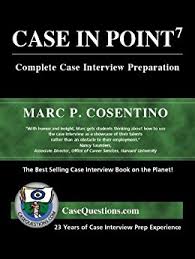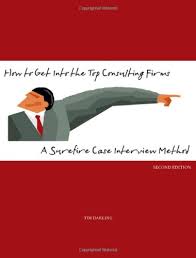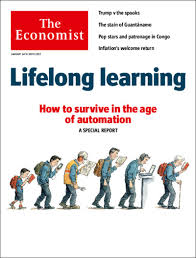It's important to be well-read when you apply for a consulting job, for several reasons:
1) Your knowledge of current business issues will be tested (directly and indirectly) throughout the recruiting process
2) Gaining exposure to business issues - the situations, problems, solutions, etc - will be a litmus test for your own interest in consulting as a career (if you don't like reading about, for example, how the U.S. automobile industry got into the pickle it's in today and all the areas they need to fix in order to get out, then it may not be a great sign for a future consulting career...unless you hate cars of course :)
3) You get a faster start at the new job and sound smarter from Day One
Consulting-Specific Books
The McKinsey Way and The McKinsey Mind, by Ethan Rasiel. Written by a former McKinsey consultant, gives you a great in-depth on firm culture and practices. You'll learn things like 80/20 thinking, hypothesis-driven problem solving, etc - things I will write about in future posts, but here's stuff that's already out there. Plus, the lessons here are equally applicable across any consulting firms.
[optin-monster slug="oa6kdflxsmp4bi4azzgi" followrules="true"]
The best part of the books is that they're fast - you can skim them quickly and pretty much extract what you need to know. Even if you aren't applying to McKinsey, you should still read these. They will help you in interviews and in understanding management consulting (and in particular, McKinsey's) culture.
BCG on Strategy - I was recommended this book via the comments below, and had the opportunity to browse through it at a local Barnes & Noble the other day. It's a good read - and very useful for understanding broader strategy frameworks and, to a lesser extent, the evolution of the consulting industry itself in which Boston Consulting Group played a large role (Ever hear the term "cash cow"? Well, BCG invented the growth/share matrix which underpins it :)
General Business-Interest Books
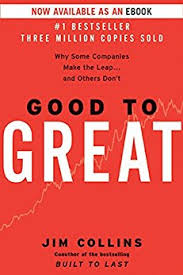 Anything by Jim Collins - personal favorites are Good to Great and Built to Last.
Anything by Jim Collins - personal favorites are Good to Great and Built to Last.
Collins does a great job shaping the zeitgeist of current business thinking. Ideas generated from his books are often conversational fodder for consulting teams and influence the way consultants understand their clients and corporations analyze themselves. Phrases like "BHAG" (big hairy audacious goal) are often thrown around in client and team settings, and understanding what it means can go a long way towards making you look good.
The Tipping Point and Outliers by Malcolm Gladwell.
You're not going to learn anything specifically relevant to consulting from Gladwell's books, but his thinking, concepts, and terminology are incredibly popular in business conversations (in particular, his framework in The Tipping Point for understanding how trends spread via archetypes of information-mavens/connectors/salesmen). He's a great writer, and his works are thoroughly enjoyable and relatively fast reads.
Case Prep
Beyond The Consulting Bible, which I think is an easily digestible entry to the world of case studies, there are much more comprehensive treatments dealing specifically with the case interview. Here are the top 2 I've been able to find:
Case In Point, by Marc Cosentino. This is probably the "seminal book" on case studies, if there is one - it's been around a long time, Cosentino is highly respected, and while I did not personally use it during recruiting, I know many people who have and have had generally good results.
Pros include a thorough, systematic approach to identifying cases (he has roughly 21 case "types", I believe), and a ton of practice (which is ultimately the most important thing). I believe these case types can be even further distilled into less than 10, but that's the focus of a future post. If you're starting from scratch, this is a great entry point but be prepared to put in the effort and hours to get through it.
How To Get Into The Top Consulting Firms, a Surefire Case Interview Method, by Tim Darling. Heard great things about this from my readers, so I bought it and checked it out. I would definitely recommend it - fast, no-nonsense writing with some very practical tips on how to break down and tackle cases.
Magazines and Periodicals
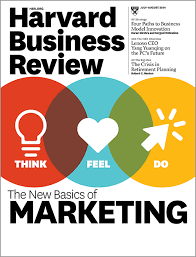 Harvard Business Review. Every issue is worth a quick browse - I haven't read a single one cover-to-cover. But the topics addressed - from how to encourage bottoms-up innovation to establishing the right organizational systems for retaining talented employees - are topics that consultants live and breathe. Reading this will also help you develop your own topical interests within the business world. For example, if you find that you really love innovation and how it's developed within companies, that can be a great topic for cover letters, to bring-up during interviews, etc. Just some extra credit.
Harvard Business Review. Every issue is worth a quick browse - I haven't read a single one cover-to-cover. But the topics addressed - from how to encourage bottoms-up innovation to establishing the right organizational systems for retaining talented employees - are topics that consultants live and breathe. Reading this will also help you develop your own topical interests within the business world. For example, if you find that you really love innovation and how it's developed within companies, that can be a great topic for cover letters, to bring-up during interviews, etc. Just some extra credit.
McKinsey Quarterly. Ditto.
The Economist. Through my McKinsey tenure, I've been surprised by the number of people who regularly read The Economist. It's the one magazine I consistently subscribe to, and will serve you well in understanding the key global issues (and in particular, finance, economics, and business) of the day. Reading The Economist consistently will give you the ability to intelligently discuss current events with recruiters, interviewers, and eventually in the course of your job.
Fortune Magazine. A more personal recommendation - Fortune has consistently high-quality articles and in-depth pieces on leading business thinkers and companies, and is also a much more interesting read than the Economist.
Great Websites
Recommend via the comments below, Booz & Co's strategy+business website. Similar to The McKinsey Quarterly, lots of great articles on tactics and strategy in the business world.
Consulting Magazine - the industry's most comprehensive resource on consulting news, including everything from personnel shifts at the top firms (for example, McKinsey recently lost a well-known pricing expert) to awards for the industry's top consultants (nominated by their peers).
